Whats the Difference in Cuts of Beef Roast
The best cuts for roasting beef and tips on how to cook it
Want to cook a joint of beef for a dinner party or special occasion? Whether you like it rare, medium or well done, our easy-to-follow guide explains the best cuts for roasting beef, plus tips on how to cook it to perfection. Find recipe links at the bottom of the page, too.
Check out our advice to help you get the most out of a beef joint.
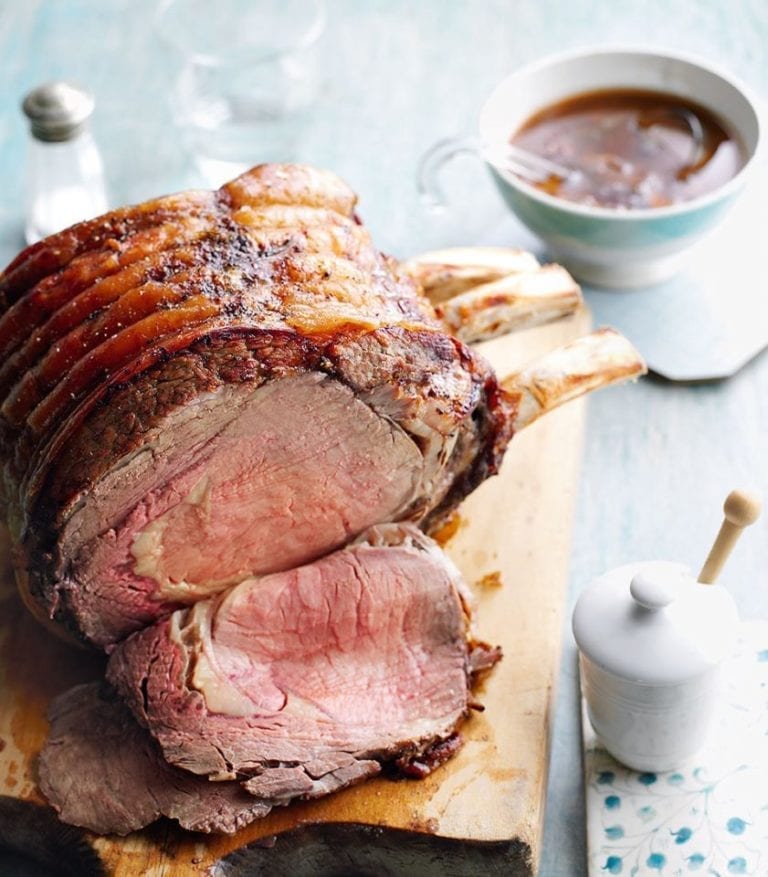
What's the difference between cuts of beef?
Fore ribs
One of the prime roasting cuts because the main lean muscle is nicely marbled and the whole joint is covered with a natural layer of fat. It is usually roasted on the bone. However, it is important to ask your butcher to chine the backbone for you, i.e. saw through the bones to semi-detach the backbone from the ribs. This makes carving easier.
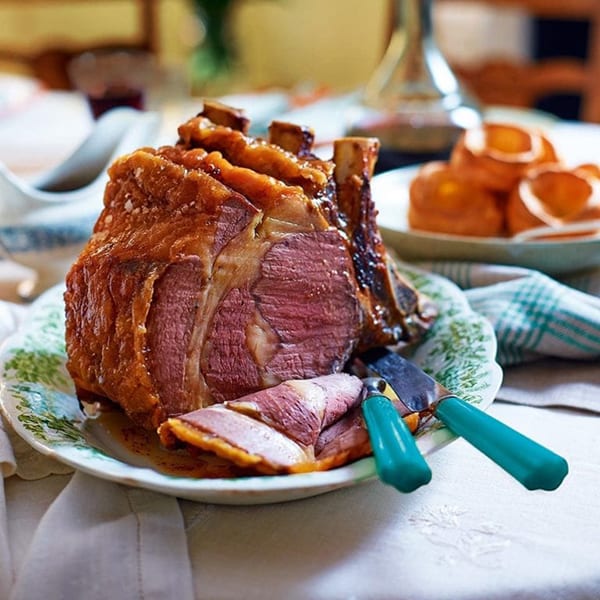
Sirloin
Can be roasted on the bone, but because of its size it is commonly boned and rolled, enabling the butcher to prepare smaller joints. Sirloin carries less fat than the rib and is very tender, so it is one of the more expensive cuts.
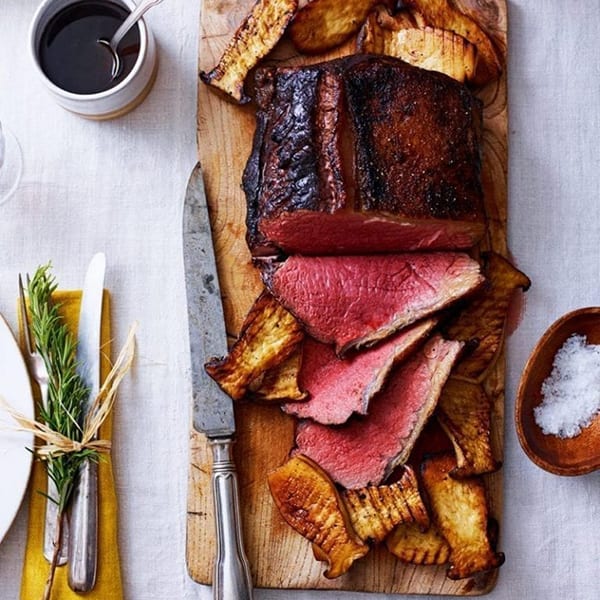
Topside, silverside and top rump
These three prime cuts are all fantastic for roasting, as they are very tender and can be carved into large lean slices. However, because the muscles used for these cuts carry less marbling, they are usually sold 'barded'.
This means that thin sheets of fat, usually taken from the flank of the same animal, are wrapped around the outside of the rolled muscle then tied in place with string to produce a neat, cylindrical joint.
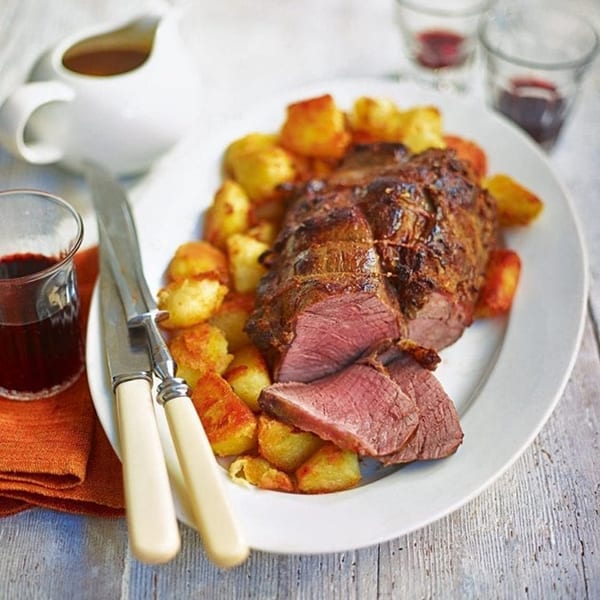
Fillet
This lean cut of beef can be roasted in one piece but benefits from the addition of bacon or some 'barding' fat to stop it drying out during roasting. Used to make the classic dish, beef Wellington.
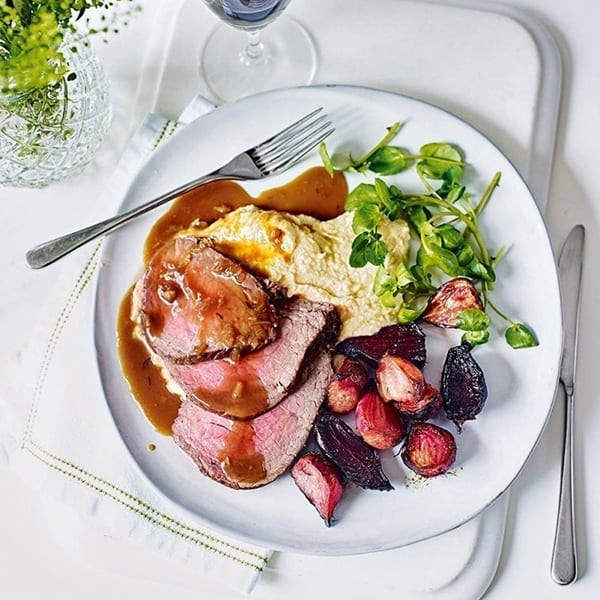
Tips for roasting beef
- Let the meat come to room temperature before you cook it.
- Roast the beef at a high temperature (240°C/fan 220°C/gas 9, or as high as your oven will go) for about 15 minutes to get the heat through to the centre of the joint. Then reduce the temperature to 190°C/fan 170°C/gas 5 and continue to roast for 12-13 minutes per 500g for rare, 17-18 minutes per 500g for medium, or 22-24 minutes per 500g for well done.
- Rest the meat before carving. This allows the meat fibres – which contract in the oven – to relax again, so the meat will be more tender.
Now it's time to do it yourself! Have a look at these recipes using different cuts of beef:
Fore rib
Thyme-roasted rib of beef with red wine gravy
Rib of beef with porcini, tarragon and port gravy
Sirloin
Chargrilled rare sirloin of beef
Topside
Slow-roast beef with a pepper and rosemary crust
Pangrattato-topped beef
Rump
Roast beef and fresh tomato rigatoni
Pink peppercorn-rubbed rump cap of beef
Fillet
Fillet of beef with chilli, lemon and cumin rub
Roast beef fillet with a horseradish crust
And the last word from us, take a look at our Sunday lunch menus, which include a traditional roast beef option as a main course, with a sweet potato soup as a starter, and bread and butter pudding for afters.
Subscribe to our magazine
Subscribe to delicious. magazine for HALF PRICE
Subscribe
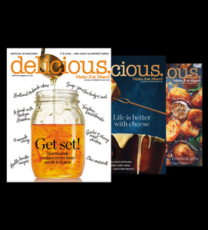
Join our newsletter
Packed with menu ideas, recipes, latest competitions and more...
Source: https://www.deliciousmagazine.co.uk/the-best-cuts-for-roasting-beef-plus-tips-on-how-to-do-it/
0 Response to "Whats the Difference in Cuts of Beef Roast"
Post a Comment